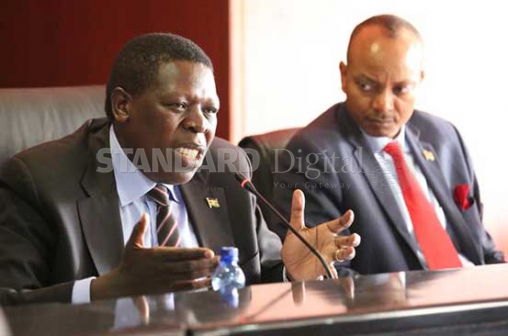×
The Standard e-Paper
Kenya’s Boldest Voice

President Uhuru Kenyatta could be forced to step in to end a vicious war between top officials of Water and Irrigation ministry.
The row threatens to derail the scheduled ground-breaking of a multi-billion dam project in Makueni and Kitui counties.